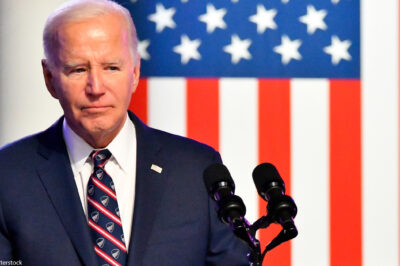Friday was the last day for the public to submit comments to the Department of Homeland Security's (DHS) republished No-Match rule. Last year, along with the AFL-CIO and National Immigration Law Center, we brought a lawsuit against the prior version of the rule.
As a result of our lawsuit, district court Judge Charles Breyer prevented the No-Match rule from taking effect in October 2007. After that decision, DHS said it would go back and address some of the concerns with the original No-Match policy, and reissue the rule. On March 26, DHS republished the rule-but they didn't change a thing. Not a single comma or letter is different from the original rule. The burden is now on DHS to go before the court and attempt to justify the same, republished rule.
Regardless of DHS's attempt to repackage the same old thing, the rule remains fundamentally flawed. According to DHS's own study of the impact the No-Match rule would have on the American economy, 70,000 people authorized to work in the U.S.-whether they're U.S.-born citizens, naturalized citizens, or immigrants legally authorized to work here-will be forced into unemployment because of flaws in the Social Security Administration's (SSA) database. Other estimates put the number at closer to 165,000 (PDF). According to the SSA's own Inspector General, 12.7 million of the 17.8 million discrepancies- from things like name changes, misspellings, and various other clerical errors-in the SSA's database belong to native-born U.S. citizens. That's more than 70 percent.
In addition, a study conducted for the U.S. Chamber of Commerce by Richard Belzer, former economist with the President's Office of Management and Budget, found based on DHS's own numbers that the estimated collective cost to employers to enforce the No-Match policy is $1 billion to $ 1.6 billion per year. When Belzer took into account the flaws in DHS's analysis, he came up with an aggregate cost to employers of $ 7 billion to $ 11 billion per year.
Belzer also found that the overall social costs of the rule would dwarf the costs to employers. He concluded that were No-Match to take effect, it would drive many workers, desperate to make a living, into an underground economy where employers don't pony up payroll taxes and workers don't contribute to Social Security. With No-Match in effect, the U.S. economy is at risk of losing $770 million per year in tax revenues. (Not to mention that this underground economy is outside the federal government's attempts to enforce immigration law through workplace enforcement, thereby circumventing No-Match itself.)
Even President Bush admits that the U.S. economy has seen better days. So it's puzzling that he would allow DHS to attempt to enforce such an unbelievably bad law, a law that could be so destructive to the U.S. economy that the U.S. Chamber of Commerce opposes it. No-Match is bad for U.S. citizens and other lawful workers, and could be catastrophic to the U.S. economy.


